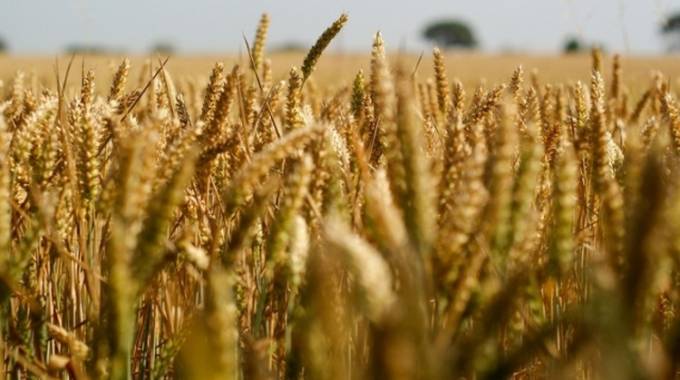
The Sunday Mail

Sharon Munjenjema
Zimbabwe is projected to harvest a better-than-expected 200 000 tonnes of wheat, according to a private company’s satellite analysis.
Government, through the Grain Marketing Board, had forecast this year’s harvest to top 120 000 tonnes, which represents about 30 percent of national demand.
The State spends about $12,5 million monthly on wheat imports.
Mr Graeme Murdoch, director of National Foods subsidiary PHI Commodities, said their survey projected output could top 200 000 tonnes.
“PHI contracted a specialist company to carry out a satellite analysis of the winter cereal crops grown in Zimbabwe in 2018.
“We believe that the final wheat crop could be as much as 200 000 metric tonnes, although we respect the GMB’s decision to be conservative and put the figure at 120 000,” said Mr Murdoch.
He cautioned there was room for error in satellite surveys.
Wheat production, which bottomed out at 12 000 tonnes in 2009 has been improving, and experts say Zimbabwe can save $42 million to $70 million if wheat deliveries top 120 000 tonnes or 200 000 tonnes respectively.
According to Mr Murdoch, Government support to the sector through Command Agriculture and favourable producer prices had stimulated production.
This year, 38 000 hectares — including 8 000ha of barley under contract from Delta — were put under winter cereal production.
Zimbabwe Farmers Union president Mr Paul Zakariya said, “We are now at the tail-end of (wheat harvesting). We are well within the time range and we should be done in the next two weeks or so.”
Zimbabwe Commercial Farmers’ Union president and Federation of Farmers’ Unions representative Mr Wonder Chabikwa said the shortage of combine harvesters impeded harvesting.
“Our wheat is in danger of being ruined by rain. It’s a worrying situation and we hope efforts to ring-fence wheat harvesting fuel will materialise very soon,” he said.
Commercial Farmers’ Union director Mr Ben Gilpin voiced the same concerns.
“Most farmers do not have storage facilities for wheat and so they need to deliver as they harvest.
‘‘In some cases, the farmer has the combine harvester and the fuel, but cannot harvest because transport is not available because of diesel shortages.”
Service providers for spares and maintenance work for combine harvesters, he said, were charging in US dollars, further prejudicing the farmers.
As at October 20, an estimated 23 000 tonnes of wheat had been delivered to the GMB. Expectations are that deliveries of wheat to the GMB will be completed by December.



